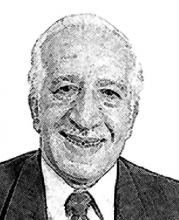You are here
The Iranian factor
Dec 06,2014 - Last updated at Dec 06,2014
The statement this week by Brig. Gen. Mohammad Ali Jafari, head of Iran’s Revolutionary Guards, should be analysed in depth since it establishes Tehran’s desire to be the main player in Arab political capitals.
On December 4, Jafari admitted with great pride the Revolutionary Guards’ role in what he called the “revolutions” in Bahrain, Yemen, Syria and Iraq.
The Iranian attempt to export Ayatollah Khomeini’s revolution to Palestine dates back to December1992 when the Israeli occupation forces deported more than 416 Hamas and Islamic Jihad political activists to Marj Al Zuhour (the no man’s land between Lebanon and Palestine), where they were hosted for months by pro-Iranian Hizbollah party cadres.
That way, Israel inadvertently, forced on the Palestinians a Catholic marriage with Tehran. Since then, military training camps and logistical support were granted to Palestinian activists, including Hamas fighters and Islamic Jihad explosives experts. Israel’s “Protective Edge” aggression on Gaza this summer revealed that hundreds of Iranian-made missiles had reached Gaza through Sinai smuggling routes.
The Iranian factor is still playing a major role in Syria. That factor was alluded to by Prince Turki Bin Feisal Al Saud, a former head of Saudi intelligence, who told a European audience days ago that Syrian President Bashar Assad’s Alawite regime would not have lasted more than two months in 2011 if Iran’s Revolutionary Guards and Hizbollah fighters had not rushed to defend Damascus against the attacks of Sunni revolutionaries.
The Iranian factor is highly visible since 2003 in Iraq, where the appointment of ministers is coordinated with the ayatollahs and some spiritual leaders in Qum and Tehran. Even the Iraqi army is powerless to deter pro-Iranian militias trained in Tehran, like the Badr Brigades, Mahdi Army and Al Haq platoons.
It is regrettable that while serious efforts are being exerted to stop the Palestinian-Israeli conflict from drifting into a wide-scale religious war between Muslims and Jews, the higher echelons in Iran are trying to start a sectarian war between Shiites and Sunnis in Yemen, where Houthi Yemenis are still occupying the capital Sanaa and other strategic positions. Iranian army officers seconded to the Shiite Houthis provide strategic advice and military support.
In sum, one of the biggest threats to the long-term stability of our region is the new generation of Iranian dreamers and military generals who attempt to export Khomeini’s revolution to Bahrain and the Gulf countries in the same way they succeeded in Beirut, Damascus and Baghdad.













